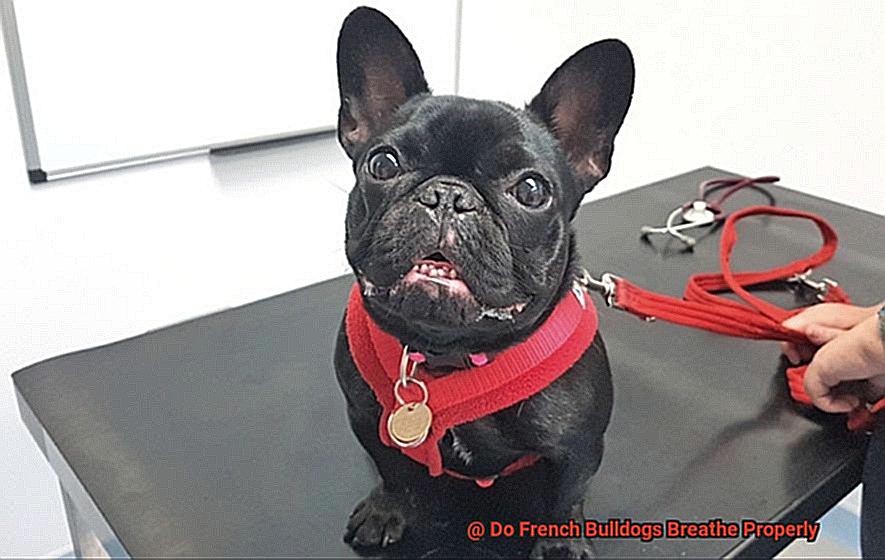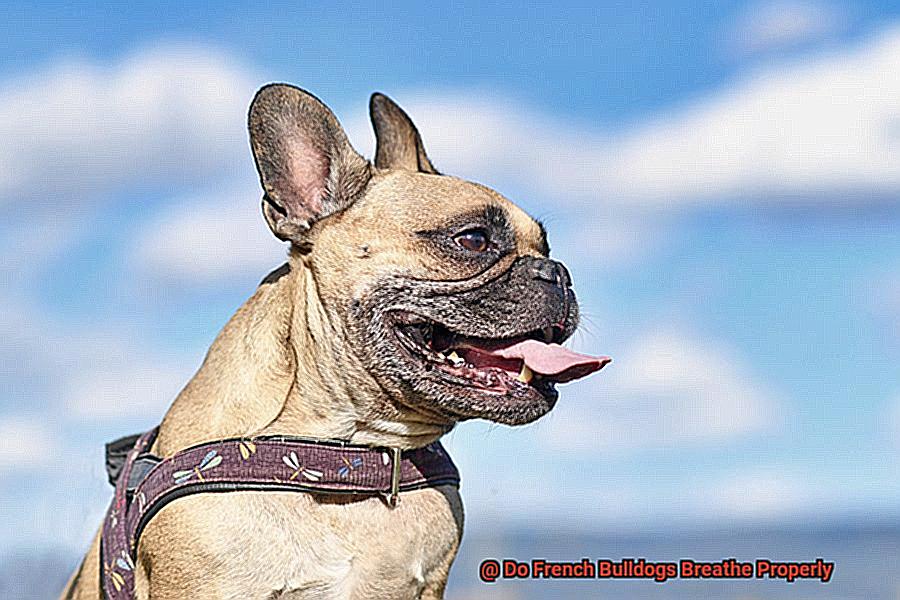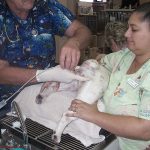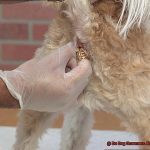Do French Bulldogs Breathe Properly?
You’ve probably come across a French bulldog at some point and couldn’t resist their squishy faces and larger-than-life personalities. But beneath those adorable expressions lies a hot topic that has everyone talking—do French bulldogs breathe properly? In this blog post, we’re diving deep into the breathing capabilities of these lovable pups, separating fact from fiction and shedding light on the misconceptions that surround them.
French bulldogs are undeniably one-of-a-kind, with their unique flat faces and compact bodies. While these features make them instantly charming, some folks worry that they might hinder their ability to breathe. So, let’s uncover the truth and get to know the real deal about French bulldogs’ breathing capacity.
In this laid-back yet informative read, we’ll explore the ins and outs of French bulldogs’ respiratory system. We’ll shine a spotlight on any potential breathing challenges that could impact their overall health and quality of life. Stay tuned to find out just how much these furry friends can “breathe easy” and discover ways to support their respiratory well-being.
So, grab a cup of coffee (or tea if you prefer), get cozy, and let’s embark on this journey together to unravel the mysteries surrounding French bulldogs’ breathing abilities.
Do French bulldogs breathe properly
Contents
- 1 Do French bulldogs breathe properly
- 2 Anatomy of French Bulldogs and Their Respiratory Problems
- 3 The Effects of Brachycephalic Syndrome on French Bulldogs’ Breathing
- 4 Narrowed Nostrils and Elongated Soft Palate Affecting Airflow
- 5 How Obesity, Heat, and Exercise Impact French Bulldogs’ Breathing
- 6 Strategies to Ensure Proper Breathing for French Bulldogs
- 7 Maintaining a Healthy Weight for Your French Bulldog
- 8 Providing a Cool and Well-ventilated Environment
- 9 Veterinary Intervention to Address Structural Abnormalities
- 10 Conclusion
French bulldogs are beloved for their adorable appearance and friendly nature. However, they are also known for their breathing difficulties. As an expert on French bulldogs, I will shed light on why these dogs may have trouble breathing properly and provide insights on how to ensure their comfort. Let’s dive into the world of French bulldogs’ unique respiratory system.
The Anatomy Behind the Breathing Challenges:
- Narrow Nostrils: French bulldogs often have stenotic nares, which are narrow nostrils that restrict airflow. This can lead to snorting, snuffling, and noisy breathing.
- Elongated Soft Palate: The soft palate is the tissue at the back of the throat that can become too long in French bulldogs. This elongation partially obstructs the airway, making breathing more difficult.
- Tracheal Stenosis: Some French bulldogs may suffer from tracheal stenosis, where the windpipe becomes narrowed or collapsed, further impeding their ability to breathe properly.
Practical Tips for Ensuring Proper Breathing:
- Maintain a Healthy Weight: Obesity can worsen breathing problems in French bulldogs. Ensure they have a balanced diet and engage in regular exercise to keep them at a healthy weight.
- Provide a Cool Environment: French bulldogs are susceptible to overheating due to their compromised respiratory system. Keep them in a cool and well-ventilated environment, especially during hot weather.
- Regular Veterinary Check-ups: Regular check-ups with a veterinarian are crucial to monitor any potential respiratory issues and address them promptly.
- Surgical Interventions: In severe cases, surgical procedures such as nares widening or soft palate resection may be recommended to improve airflow and alleviate breathing difficulties.
- Moderate Exercise: Avoid excessive exertion or strenuous activities that strain the respiratory system. Opt for shorter walks and moderate play sessions, particularly in hot weather.
Anatomy of French Bulldogs and Their Respiratory Problems
In this blog post, we’ll dive into the anatomy of French Bulldogs and how it contributes to their breathing difficulties. So, grab a cup of coffee and let’s explore the world of French Bulldog respiratory health.
The Short and Compact Skull:
French Bulldogs are known for their adorable flat faces, but this feature comes with a price – a shortened upper airway. With compressed nasal passages, throat, and windpipe, these cuties can find it challenging to catch their breath.
Brachycephalic Airway Syndrome (BAS):
The most common respiratory issue in French Bulldogs is BAS. This syndrome includes several anatomical abnormalities that restrict airflow, such as narrowed nostrils, elongated soft palates, and collapsed tracheas. It’s like a traffic jam in their respiratory system.
Stenotic Nares – Snorting and Snoring:
Narrowed nostrils, also known as stenotic nares, are a common problem in French Bulldogs. Imagine trying to breathe through a straw while running a marathon – not an easy task. These small nostrils make it harder for them to inhale enough air, resulting in snorting, snoring, and increased effort in breathing.
Elongated Soft Palate – The Culprit Behind Choking Sounds:
The soft palate is the tissue at the back of the throat that separates the mouth from the nasal cavity. In French Bulldogs, this tissue can become too long and obstruct the airway, causing them to make choking sounds. It’s like having a curtain blocking the stage.
Collapsed Trachea – A Roadblock in the Windpipe:
French Bulldogs are also prone to a collapsed trachea. The trachea carries air from the nose and mouth to the lungs, but in Frenchies, the tracheal rings can collapse or weaken, further obstructing their already compromised respiratory system.
Heatstroke Hazards:
Due to their respiratory challenges, French Bulldogs have a harder time cooling themselves down through panting. This makes them more prone to heatstroke and other heat-related illnesses. So, keep them cool and hydrated in hot and humid environments.
Treatment Options:
Fortunately, there are ways to help our Frenchie friends breathe easier. Surgical interventions like widening the nares and soft palate resection can improve their airflow. Weight management, avoiding intense exercise, and providing a cool and well-ventilated environment are also crucial in managing their respiratory health.
The Effects of Brachycephalic Syndrome on French Bulldogs’ Breathing
In this blog post, we will explore the effects of this syndrome on French Bulldogs’ breathing, providing accurate and practical information to help you better understand and care for your furry friend.
Understanding Brachycephalic Syndrome:
Brachycephalic Syndrome is a common condition found in brachycephalic breeds like French Bulldogs. It is characterized by anatomical abnormalities in the upper respiratory system, resulting in breathing difficulties. Let’s dive into the key features of this syndrome:
Shortened Skull Shape and Narrowed Nostrils:
French Bulldogs with Brachycephalic Syndrome often have a shortened skull shape and narrowed nostrils, restricting the airflow in and out of their nasal passages. This leads to snorting, snoring, and wheezing sounds as they struggle to breathe comfortably.
Elongated Soft Palate:
Another hallmark of Brachycephalic Syndrome is an elongated soft palate. This curtain-like structure hangs down in the back of the throat, further obstructing the airway and causing additional breathing challenges for our beloved Frenchies.
Effects on Breathing:
The combination of these anatomical abnormalities can result in a range of breathing problems for French Bulldogs:
Snorting and Wheezing:
You may notice your Frenchie making snorting or wheezing sounds, especially during periods of physical activity or excitement. These noises are a result of their compromised airway struggling to meet the demand for oxygen.
Coughing:
French Bulldogs with Brachycephalic Syndrome may experience frequent coughing episodes due to their constricted airway. This can be distressing for both the dog and the owner.
Difficulty Breathing:
In severe cases, French Bulldogs may exhibit difficulty breathing, which should be treated as a medical emergency. If your Frenchie shows signs of extreme distress, such as gasping for air or collapsing, seek immediate veterinary care.
Managing Brachycephalic Syndrome:
While surgical intervention may be necessary in some cases, there are several management strategies that can help alleviate breathing difficulties for French Bulldogs with Brachycephalic Syndrome:
Weight Control:
Maintaining a healthy weight is crucial for minimizing breathing issues. Excess weight can further strain the already compromised respiratory system.
Avoiding Stressful Situations:
Stress and anxiety can exacerbate breathing difficulties, so it’s essential to create a calm and low-stress environment for your Frenchie.
Narrowed Nostrils and Elongated Soft Palate Affecting Airflow
French Bulldogs are beloved for their unique appearance and delightful personalities. However, their distinctive physical features, including narrowed nostrils and an elongated soft palate, can significantly impact their ability to breathe properly. In this article, we will explore how these conditions affect airflow in French Bulldogs and provide practical tips for managing their respiratory difficulties.
Understanding the Issues:
Narrowed Nostrils (Stenotic Nares):
- Small or collapsed nostrils restrict the airflow.
- Symptoms: Snorting, snoring, and difficulty breathing.
- Impact: Reduced oxygen intake, especially during exercise or in hot weather.
- Potential risk: Higher susceptibility to heatstroke due to impaired temperature regulation.
Elongated Soft Palate:
- Excess length of the soft tissue at the back of the throat.
- Causes obstruction when it falls back during breathing.
- Symptoms: Wheezing, coughing, and labored breathing.
- Impact: Impaired airflow and potential respiratory distress.
Management Strategies:
Lifestyle Modifications:
- Avoid strenuous exercise in hot weather to prevent overexertion.
- Provide a cool and well-ventilated environment.
- Limit exposure to extreme temperatures.
Medical Interventions:
- Consult a veterinarian for a proper diagnosis and treatment plan.
- Medications may be prescribed to reduce inflammation and improve breathing.
Surgical Intervention:
- In severe cases, surgical correction may be necessary.
- Procedures can include widening the nostrils or shortening the soft palate.
- Surgery should be performed by a skilled veterinarian experienced in brachycephalic breeds.

French Bulldogs with narrowed nostrils and an elongated soft palate require special attention to ensure their respiratory health. By understanding these conditions and implementing appropriate management strategies, owners can help their furry friends breathe easier and live a comfortable life. Regular monitoring of symptoms, seeking veterinary advice, and providing a suitable environment are key to ensuring the well-being of French Bulldogs affected by compromised airflow.
How Obesity, Heat, and Exercise Impact French Bulldogs’ Breathing
French Bulldogs are known for their charming personalities and distinctive physical features. However, their unique anatomy makes them prone to breathing difficulties. In this article, we will explore how obesity, heat, and exercise can impact the breathing of French Bulldogs. Understanding these factors is essential for the well-being of our furry friends. So, let’s dive in and learn how to help our Frenchies breathe easy.
The Heavy Burden of Obesity:
French Bulldogs have an innate love for food, which, combined with their genetic predisposition to obesity, can lead to significant respiratory challenges. Carrying extra weight puts additional pressure on their respiratory system, making it harder for them to breathe properly. Imagine trying to take a deep breath with a tight belt around your waist – it’s not easy. To prevent obesity-related breathing issues, owners should monitor their Frenchie’s weight and ensure they maintain a balanced diet and regular exercise routine.
Beating the Heat:
French Bulldogs are more vulnerable to heat exhaustion and heatstroke due to their brachycephalic (short snout) anatomy. Their narrower airways make it difficult for them to regulate their body temperature efficiently. As a result, they may experience rapid breathing and excessive panting when exposed to hot weather. To keep your Frenchie cool, provide shade, fresh water, and avoid intense exercise during peak temperatures. Remember, prevention is key when it comes to protecting your furry friend from overheating.
Exercise with Caution:
While regular exercise is crucial for French Bulldogs’ overall health, their brachycephalic structure necessitates caution during physical activities. Their narrow airways make it challenging for them to breathe efficiently during intense exercise or prolonged activities. Overexertion can quickly lead to exhaustion and respiratory distress. It’s important to tailor exercise routines to suit your Frenchie’s abilities and closely monitor their breathing during and after physical exertion. Be mindful of their limitations and provide them with moderate exercise to keep them fit and happy.
Strategies to Ensure Proper Breathing for French Bulldogs
As a French Bulldog owner, it is crucial to understand the unique respiratory challenges that these adorable pups face. Their brachycephalic (flat-faced) structure can make it difficult for them to breathe properly and lead to various respiratory issues. However, with the right strategies in place, you can ensure that your furry companion breathes properly and lives a healthy life. Here are some tips to help you achieve that:
- Maintain a Healthy Weight: Excess weight can put additional strain on your French Bulldog’s respiratory system, making it harder for them to breathe. Feed them a balanced diet and provide regular exercise to help them maintain a healthy weight.
- Provide a Well-Ventilated Environment: Make sure your French Bulldog has access to a well-ventilated space. Extreme temperatures can worsen their breathing difficulties, so keep them in air-conditioned spaces during hot weather and provide warm blankets during colder months.
- Monitor Exercise Intensity: Regular exercise is beneficial for French Bulldogs, but be mindful of their limitations. Brachycephalic dogs are prone to overheating and exhaustion due to their compromised airways. Opt for shorter walks and play sessions and monitor their breathing during physical activity. If they start panting excessively or struggling to catch their breath, it’s time to take a break.
- Provide a Comfortable Resting Area: French Bulldogs need a comfortable resting area that supports their breathing health. Elevated beds or pillows can help keep their airways open while they sleep or rest. Ensure that their sleeping area is free from dust, allergens, and other irritants that can further compromise their breathing.
- Use Harnesses Instead of Collars: When taking your French Bulldog for walks, opt for a harness instead of a collar. Collars can put pressure on their necks and restrict airflow, whereas harnesses distribute the force more evenly across their chest and back, minimizing any potential respiratory restrictions.
- Regular Vet Check-ups: Regular visits to the veterinarian are essential for French Bulldogs, especially when it comes to their respiratory health. Routine check-ups can help identify any potential breathing issues early on and allow for prompt treatment. Your vet may also provide specific recommendations tailored to the individual needs of your French Bulldog.
- Be Aware of Signs of Respiratory Distress: Educate yourself about the signs of respiratory distress in French Bulldogs. These may include excessive panting, noisy or labored breathing, coughing, wheezing, or collapsing. If you observe any of these symptoms, seek immediate veterinary attention.
Maintaining a Healthy Weight for Your French Bulldog
In this blog post, we will dive into the importance of maintaining a healthy weight for your French Bulldog and provide you with practical tips on how to achieve it. Let’s unlock the secret to their health and happiness together.
Understanding the Importance of a Healthy Weight:
French Bulldogs have a unique anatomy that makes them susceptible to weight gain and breathing problems. Obesity can exacerbate these issues, making it crucial to keep your furry friend at a healthy weight. By maintaining an optimal weight, you not only improve their breathing but also enhance their overall well-being.
Feeding the Right Way:
Choose high-quality dog food specifically formulated for small breeds or French Bulldogs. These foods provide the necessary nutrients while preventing excessive weight gain.
Practice portion control by establishing a feeding schedule and dividing their daily food allowance into two or three smaller meals. This helps prevent overeating and promotes better digestion.
Keeping Them Active:
Despite their unique structure, French Bulldogs still need regular exercise to burn calories and maintain muscle tone. Short walks, gentle play sessions, and low-impact exercises like swimming are excellent options that won’t strain their respiratory system.
Tailor the exercise routine to their individual needs and limitations, ensuring they get enough physical activity without overexertion.
Monitoring Their Weight:
Regularly assess your French Bulldog’s weight to spot any signs of weight gain. Look for a thickened waistline or difficulty in feeling their ribs. If you notice any changes, consult with your veterinarian for guidance on adjusting their diet or exercise routine.
Beating the Heat:
French Bulldogs are sensitive to heat, so it’s essential to prevent overheating. Provide shade, fresh water, and a cool environment during hot weather to keep them comfortable and avoid exacerbating breathing difficulties.
Lifelong Commitment:
Remember that maintaining a healthy weight is a lifelong commitment. As your French Bulldog ages, their dietary and exercise needs may change. Regularly reassess their weight and adjust their routine accordingly to ensure they stay at an optimal weight throughout their lives.
Providing a Cool and Well-ventilated Environment
French Bulldogs are beloved companions known for their charming personalities and distinctive looks. However, they are also prone to brachycephalic airway syndrome, a condition that affects their breathing. One crucial aspect of managing this condition is providing a cool and well-ventilated environment. As an experienced French Bulldog owner myself, I understand the importance of creating a comfortable living space for these adorable pups.
Creating the Perfect Environment:
Optimal Temperature Control:
- Maintain a room temperature between 68-72 degrees Fahrenheit to prevent discomfort.
- Avoid exposing your Frenchie to direct sunlight or hot areas such as cars.
- Consider using air conditioning or fans to regulate the temperature.
Outdoor Considerations:
- Provide shaded areas for your Frenchie when spending time outside.
- Avoid outdoor activities during peak heat hours.
Humidity Control:
- Keep humidity levels below 50% to alleviate breathing difficulties.
- Use dehumidifiers if necessary.
Cleanliness and Ventilation:
- Regularly clean and maintain your Frenchie’s living space to minimize irritants.
- Open windows or use air purifiers to improve air circulation.
Additional Tips for Hot Climates:
Cooling Solutions:
- Invest in cooling mats or provide access to cool surfaces for your Frenchie.
- Freeze water bottles or wet towels for them to lay on.
Hydration is Key:
- Ensure an ample supply of fresh, cool water at all times.
- Consider using elevated water bowls to prevent strain on their necks.
Veterinary Intervention to Address Structural Abnormalities
These charming companions often suffer from structural abnormalities that can lead to breathing difficulties. In this blog post, we will explore how veterinary intervention can address these issues and improve the quality of life for French Bulldogs.
Understanding the Structural Abnormalities:
Narrowed Nostrils (Stenotic Nares):
Narrowed nostrils make it challenging for French Bulldogs to take in sufficient air through their noses. This can cause increased breathing effort and noisy breathing sounds, especially during exercise or excitement.
Elongated Soft Palate:
The soft palate is the tissue at the back of the throat that separates the mouth from the nasal passages. In French Bulldogs with an elongated soft palate, this tissue extends further into the airway than it should, partially blocking airflow and making breathing more difficult.
Narrow Windpipe (Tracheal Stenosis):
A narrow windpipe restricts the flow of air into the lungs, leading to breathing difficulties and potentially respiratory distress.

Veterinary Interventions:
Nares Resection or Widening:
During this surgical procedure, a veterinarian will remove a small portion of tissue from the nostrils to widen them, allowing for better airflow. This surgery significantly improves breathing through the nose and reduces breathing difficulties.
Soft Palate Resection:
If a French Bulldog has an elongated soft palate, a soft palate resection may be recommended. This surgery involves surgically trimming the elongated portion of the soft palate to improve airflow and reduce respiratory distress. It can make a significant difference in their ability to breathe properly.
Combination Surgeries:
In severe cases where a French Bulldog has both narrowed nostrils and an elongated soft palate, a combination of nares resection and soft palate resection surgeries may be necessary. This comprehensive approach addresses multiple issues and improves breathing more effectively.
BavrivADAcA” >
Conclusion
French Bulldogs, known for their adorable appearance and friendly demeanor, are unfortunately prone to a breathing condition called brachycephalic airway syndrome. This means that their short snouts and flat faces can make it challenging for them to breathe properly. It’s important for potential owners to be aware of this issue and take the necessary precautions to ensure their furry friends lead healthy lives.
Now, you might be wondering why French Bulldogs have these breathing problems in the first place. Well, it all comes down to their unique anatomy. Their cute little noses are squished inwards, which restricts airflow and makes it harder for them to take in oxygen. Additionally, their elongated soft palates can obstruct their airways further, causing even more breathing difficulties.
But don’t worry. While French Bulldogs may face these challenges, there are steps you can take as an owner to help them breathe more comfortably. Regular exercise is essential for maintaining their overall health and keeping those precious air passages clear. However, it’s crucial to avoid excessive physical exertion or exposure to extreme temperatures, as these can exacerbate breathing issues.
Furthermore, providing a well-ventilated living environment is key. Keep your home cool and free from irritants like smoke or strong odors that could trigger respiratory distress. Investing in a high-quality air purifier can also help filter out any potential allergens or pollutants that might worsen your Frenchie’s breathing difficulties.
In addition to environmental considerations, proper nutrition plays a significant role in managing their respiratory health. Feeding your French Bulldog a balanced diet with appropriate portion sizes can prevent obesity—a condition that puts extra strain on their already compromised airways.
Regular veterinary check-ups are another vital aspect of caring for your French Bulldog’s respiratory well-being. A knowledgeable veterinarian will monitor any signs of respiratory distress and provide guidance on how best to manage the condition if needed.
In conclusion, while French Bulldogs may not breathe as effortlessly as some other breeds, with proper care and attention, they can lead happy and fulfilling lives. By being aware of their unique respiratory challenges and taking proactive measures to alleviate them, you can ensure that your furry companion breathes a little easier every day.




